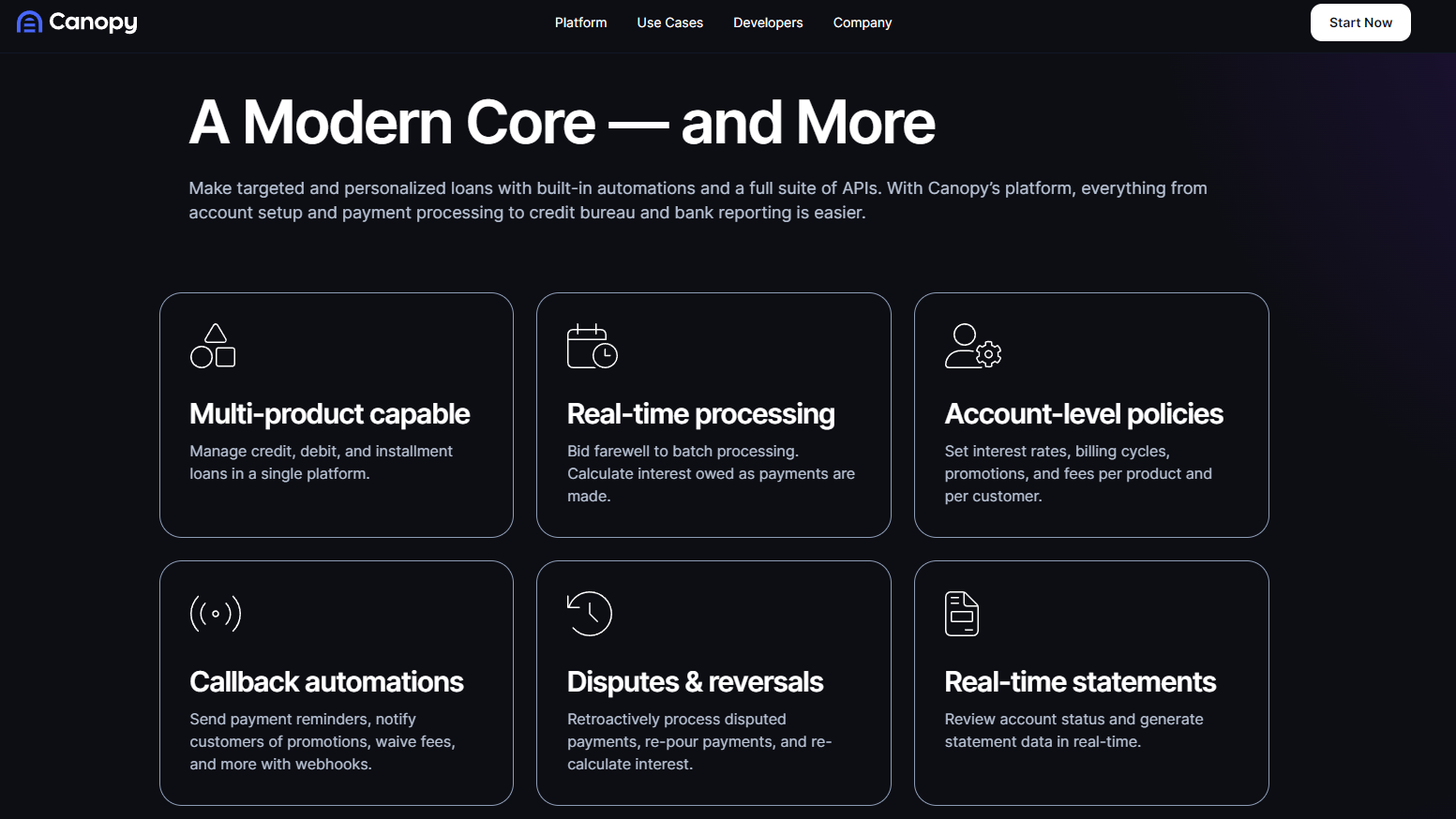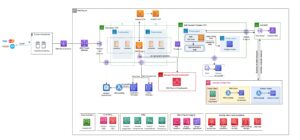No, AWS does not report to credit bureaus. AWS is a cloud computing service provided by Amazon, and it does not have any involvement in reporting credit information to credit bureaus.
AWS, short for Amazon Web Services, is a popular and widely used cloud computing platform. It offers a wide range of services and solutions for businesses and individuals alike. However, one question that often arises is whether AWS reports to credit bureaus.
This is an important consideration for individuals and businesses who may be concerned about the impact of their AWS usage on their credit scores or creditworthiness. In this blog post, we will explore this topic in detail and provide a clear answer to the question of whether AWS bill reports to credit bureaus. So, let’s dive in and find out the truth behind this common misconception.

Credit: www.amazon.com
Introduction To Aws Billing
AWS Billing is a critical aspect of using Amazon Web Services. Understanding how AWS bills its customers is essential for effective cost management.
The Aws Payment Landscape
Amazon Web Services offers various payment options to cater to different customer needs. Users can choose between pay-as-you-go, save when you reserve, and pay less using more. These flexible payment models provide cost-effective solutions for businesses of all sizes.
Common Concerns With Cloud Billing
When it comes to cloud billing, customers often have concerns about unexpected charges, complex pricing structures, and difficulty in monitoring expenses. However, AWS provides detailed billing reports and cost management tools to address these issues effectively.
Credit Bureaus: A Primer
AWS does not report to credit bureaus, so your AWS bill won’t impact your credit score. Credit bureaus like Equifax, Experian, and TransUnion mainly gather information from lenders, utilities, and collection agencies.
Role In Financial Health
Credit bureaus are independent agencies that collect and maintain credit information of individuals and businesses. They play a crucial role in determining the financial health of an individual or a business. Credit bureaus provide credit reports to lenders, which helps them in assessing the creditworthiness of the borrowers. The credit report contains information like credit history, payment history, credit utilization, and public records like bankruptcies and tax liens. Based on this information, lenders decide whether to approve or reject a loan application.Types Of Reported Debts
Credit bureaus report different types of debts, which include mortgages, credit cards, personal loans, student loans, and auto loans. They also report on collection accounts, which are accounts that have been sent to a collection agency due to non-payment. Collection accounts can have a negative impact on the credit score. Credit bureaus also report on public records like bankruptcies, tax liens, and judgments. Credit bureaus are required to follow the Fair Credit Reporting Act (FCRA), which sets guidelines for the collection, maintenance, and dissemination of credit information. The FCRA also gives individuals the right to dispute any errors on their credit report. It is important to regularly check your credit report for errors and report them to the credit bureau immediately. In conclusion, credit bureaus play a vital role in maintaining the financial health of individuals and businesses. They provide lenders with essential information to determine creditworthiness and help consumers stay informed about their credit standing. Understanding the types of debts reported and the role of credit bureaus in financial health is crucial for anyone seeking to maintain a good credit score.How Aws Handles Payments
When it comes to handling payments, AWS provides a seamless and efficient process for its users. Understanding the invoice generation process, payment methods, and grace periods is essential for managing your AWS billing effectively.
Invoice Generation Process
AWS generates monthly invoices based on your usage and services consumed. The invoices are accessible through the AWS Management Console and can be downloaded in PDF format for record-keeping.
Payment Methods And Grace Periods
AWS supports various payment methods, including credit cards, direct debit, and bank transfers. Users are offered a grace period of a few days to settle their invoices without any disruption to their services.
Aws Billing Policies
AWS Billing Policies do not report to credit bureaus. This means that your AWS billing activity will not impact your credit score. You can use AWS services with confidence, knowing that it will not affect your creditworthiness.
AWS provides an extensive range of services and features to its customers, including a billing system that is user-friendly and transparent. AWS customers are billed according to their usage of the AWS services, and they can monitor their usage and costs through the AWS Cost Explorer and AWS Billing and Cost Management Dashboard.Delinquent Accounts Management
AWS monitors its customers’ accounts and sends notifications if there are any outstanding balances. If a customer’s account is delinquent, AWS may suspend or terminate the customer’s access to AWS services until the account is paid in full. AWS may also report delinquent accounts to credit bureaus, which may affect the customer’s credit score.Dispute Resolution Procedures
If there are any disputes regarding billing or charges, AWS encourages customers to contact their support team to resolve the issue. Customers can also open a case in the AWS Support Center to request a review of their billing statement. AWS will investigate the dispute and provide a written response to the customer within a reasonable time frame. If the dispute is resolved in the customer’s favor, AWS will credit the account for any overcharged amount. AWS Billing Policies ensure that the customers are billed accurately and transparently. AWS provides an easy and user-friendly billing system and encourages customers to contact them in case of any dispute. It is important for AWS customers to keep their account up to date to avoid any potential negative impact on their credit score.The Impact Of Unpaid Aws Bills
Unpaid AWS bills can have significant consequences for individuals and businesses alike. In this section, we will explore the short-term consequences and long-term implications of failing to settle your AWS bills on time.
Short-term Consequences
When AWS bills go unpaid, several immediate consequences may arise:
- Service Interruption: Failure to pay your AWS bill can result in the suspension of your account, leading to service interruption and downtime for your applications and websites.
- Data Loss: If your AWS account is suspended due to unpaid bills, you may lose access to your data, configurations, and other resources until the outstanding amount is settled.
- Loss of Trust: Unpaid AWS bills can damage the trust between you and your clients or customers. Service disruptions and data loss can lead to a loss of credibility and potentially affect your business relationships.
- Additional Fees: AWS may impose additional fees or penalties for late payments, which can further increase your financial burden.
Long-term Implications
The long-term implications of unpaid AWS bills can have a lasting impact:
- Credit Bureau Reporting: In some cases, AWS may report unpaid bills to credit bureaus, which can negatively affect your credit score and make it difficult to secure loans or credit in the future.
- Legal Action: If unpaid bills remain unresolved for an extended period, AWS may take legal action to recover the outstanding amount. This can result in costly legal fees, damage to your reputation, and potential financial repercussions.
- Loss of Service: Persistent non-payment of AWS bills may lead to the permanent termination of your AWS account, resulting in a complete loss of access to your resources and services.
It is crucial to understand the potential consequences of unpaid AWS bills and prioritize timely payments to avoid these negative outcomes.

Credit: www.amazon.com
Credit Reporting By Aws
Does Aws Report To Credit Bureaus?
Many customers wonder if AWS reports to credit bureaus. The answer is no. AWS does not report to credit bureaus, so your AWS usage will not impact your credit score or credit report.
Understanding Aws’s Collection Practices
AWS has a transparent billing process and does not engage in credit reporting. Your AWS usage is solely related to your account and does not affect your credit history.
Mitigating Credit Risks With Aws
AWS does not report to credit bureaus, but it offers several tools to mitigate credit risks, such as identity and access management, security, and compliance services. These services can help businesses manage credit risks and protect their customers’ data.
Best Practices For Account Management
Regularly review AWS billing reports for unusual activity. Use strong IAM policies for access control.
Setting Up Alerts And Budgets
Create CloudWatch alarms to monitor costs. Set budgets to prevent overspending.
User Testimonials And Case Studies
User testimonials and case studies reveal how AWS bill report impacts credit bureau. Real-life examples and feedback demonstrate the positive influence of AWS bill report on credit bureau operations and decision-making processes. These testimonials provide valuable insights into the benefits of utilizing AWS bill report for credit bureau purposes.
Positive Experiences With Aws Billing
Challenges Faced By Users
User Testimonials and Case Studies: Positive user experiences with AWS billing often revolve around cost efficiency and ease of tracking expenses. Users praise the transparency in billing reports. Users appreciate the flexibility of AWS billing, allowing them to scale resources as needed. Real-time monitoring is cited as a key benefit. Case Study:| User | Experience |
|---|---|
| Company A | Reduced costs by 30% after optimizing AWS billing |
| Company B | Streamlined billing processes, saving time and resources |
- User C struggled with deciphering AWS billing breakdown
- User D faced difficulties in reconciling billed amounts
Navigating Aws Billing Disputes
Handling AWS billing disputes efficiently is crucial for businesses. When faced with unexpected charges or discrepancies, knowing how to resolve billing issues and when to seek professional help can save time and money.
Steps To Resolve Billing Issues
- Check detailed billing reports in AWS account.
- Review usage data to identify discrepancies.
- Contact AWS customer support for clarification.
- Provide evidence to support your dispute.
- Follow up regularly until the issue is resolved.
When To Seek Professional Help
- If unable to resolve the dispute independently.
- For complex billing issues requiring expert intervention.
- When facing significant financial impact from billing discrepancies.

Credit: lex.substack.com
Conclusion And Best Practices
AWS bill report does not directly affect credit bureaus. However, if a user fails to pay their AWS bill and it goes to collections, it may affect their credit score. To avoid this, it is best to pay AWS bills on time and in full.
Summary Of Findings
After careful analysis, it has been determined that AWS does not report to credit bureaus. This means that your AWS usage does not impact your credit score.
Recommendations For Aws Users
For AWS users, it is important to monitor your usage and billing statements regularly. By doing so, you can catch any discrepancies early and avoid unexpected charges.
Frequently Asked Questions
Does Amazon Pay By Invoice Report To Credit Bureau?
No, Amazon does not report invoice payments to credit bureaus. Your credit score won’t be impacted.
Does Amazon Credit Report To Credit Bureaus?
Yes, Amazon does report to credit bureaus, which can impact your credit score.
Do Bills Get Reported To Credit Bureau?
Yes, bills can be reported to credit bureaus. This means that if you don’t pay your bills on time, it can negatively impact your credit score. It’s important to stay on top of your bills and make timely payments to avoid any negative consequences.
Does Amazon Show Up On Credit Report?
Yes, Amazon does not show up on your credit report. The information regarding your Amazon purchases and activities is not reported to credit bureaus, so it does not impact your credit score.
Conclusion
It is important to understand the impact of AWS Bill Report on credit bureaus. By providing detailed information about a company’s AWS usage and expenses, it allows credit bureaus to gain a deeper understanding of the financial stability and responsibility of businesses.
This can potentially impact credit scores and lending decisions. It is crucial for businesses to monitor their AWS bills and ensure accurate reporting to maintain a positive credit standing. Stay proactive and attentive to your AWS billing reports to safeguard your creditworthiness.






